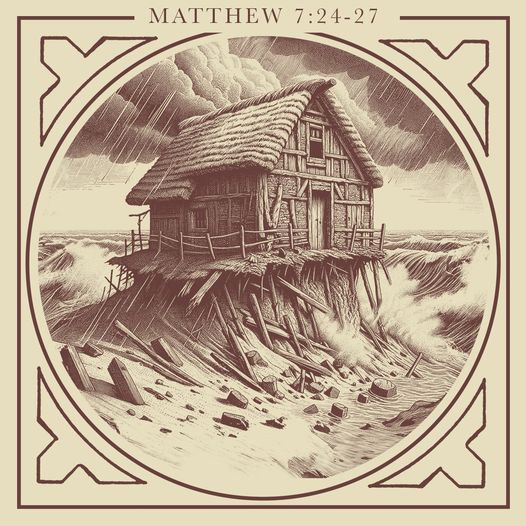
Objectivity Vs Subjectivity: Navigating Life’s Crazy Corners
When we first moved to Ada to plant King’s Fellowship Church, I had an appointment at McGraw Realtors to pick up my keys for our rental home. That’s when I first saw it, the world’s most dangerous intersection. It looks like something you would see in the lawless streets of Nepal or from the dreams of Leonardo DiCaprio in the movie Inception. This little death trap is a five-way stop sign intersection with a train track running right through it, and oh, the train track has no safety barrier or railroad crossing arm. Needless to say, this is the most dangerous intersection in Ada and has been aptly named “Crazy Corner” by all the Ada locals.
Stoplights create objectivity. Red means “stop” and green means “go”. Obviously, yellow means “HURRY UP, IT’S GOING TO TURN RED SOON”. But stop signs introduce subjectivity. In a standard four-way stop, drivers follow a relatively straightforward protocol: the first vehicle to stop at the intersection has the right of way, followed by others in the order in which they arrive. If two vehicles arrive simultaneously, the vehicle on the right typically has the right of way. But what if three, four, or five vehicles arrive at similar times during a busy period of traffic?
A five-way stop sign intersection increases complexity and risk compared to a four-way stop due to the additional approach, complicating navigational cues and right-of-way decisions, leading to potential hesitation and confusion among drivers. Its irregular geometry can cause reduced visibility and unfamiliarity, increasing the likelihood of incorrect maneuvers. Even if the intersection had the law, order, and objectivity of a stop light and a railroad crossing arm, it would still be dangerous. But the fact that the rules of the road are governed by the opinions and split-second decisions of drivers makes it all the more dangerous. At the end of the day, subjectivity is the breeding ground for calamity.
So many Christians find themselves in a proverbial “Crazy Corner”. Life throws them curveballs: Do I stop, go, yield, turn, stop in front of the tracks, behind the tracks? Should I go to my brother’s gay wedding, should I condone the divorce of an unhealthy marriage, when does telling my story bleed into gossip or slander?
Too often, Christians find themselves in these extremely uncomfortable situations and end up making decisions based on how they subjectively feel in the moment. This buckling under pressure can be a result of their own lust and desires, the persecution of the world, or simply the peer pressure of friends and family. But at the end of the day, due to the pervasiveness of biblical illiteracy, they do what is right in their own eyes (Judges 17:6; 21:25).
However, Jesus offers a better alternative. In Matthew 7:24-27, Jesus speaks of the rains, wind, and crashing waves, how they can beat against the foundation of those who build their life upon His word. Jesus says of that house and its foundation, “it did not fall”. Why? Because the foundation of the house was not built on the subjectivity of opinions, preferences, and vain ambition, but rather it was built upon the word of God.
This is not to say that the Christian will not be challenged with moral dilemmas. You and I will be faced with challenges in the 21st century that no one in the 1st century could have foreseen. There will be difficulty in applying the objective moral framework of Scripture to our everyday life. It may be messy, and it may even get dangerous. Nonetheless, the Bible functions as our objective stoplight. The crazy corner of life is still dangerous, but with the Bible as our objective guide for ethics, justice, and righteousness, we can navigate life’s crazy corners with the confidence of God’s objectivity rather than the subjectivity of our feelings or desires.
Visit our home page:
https://kingsfellowshipchurch.com/
See more about our city:
